3 Vamos fazer compras?
LET’S GO SHOPPING?
Learning Objectives
In chapter Vamos fazer compras?, students will:
- learn how to conjugate and to use the verb to go to to express future actions;
- learn how to use the verb to go to talk about going shopping;
- review interrogative pronouns;
- learn direct object pronouns;
- learn demonstrative words;
- learn the vocabulary for food, meals and utensils and
- learn about the gastronomy of different Lusophone countries.
Warm up and review of interregative words
Complete the following sentences:
- O que ……………………………………………….?
- Quando …………………………………………………?
- Qual ……………………………………………………….?
- Onde ………………………………………………………..?
- Quem ……………………………………………………….?
- Quanto …………………………………………………..?
- Por que ………………………………………………………?
PARA ONDE VAMOS?
VAMOS AO MERCADO! (Vamos para o mercado!)
VAMOS À FEIRA! (Vamos para a feira!)
Agora, vamos comprar comida nos países de língua portuguesa.
Key Takeaways
Shopping for food in Lusophone countries, which include Portugal, Brazil, and several African nations, is often a vibrant and sensory-rich experience. Markets bustle with activity as vendors proudly display colorful arrays of fresh fruits, vegetables, and spices. In Portugal, traditional markets like Lisbon’s Mercado da Ribeira offer a glimpse into the country’s culinary heritage, while in Brazil, bustling street markets such as São Paulo’s Mercado Municipal overflow with tropical delights like exotic fruits and freshly caught seafood. In African Lusophone countries like Angola and Mozambique, markets teem with an eclectic mix of local produce, reflecting the diverse cultural influences of their regions. Whether haggling for the freshest catch or sampling local delicacies, shopping for food in Lusophone countries is not just a necessity but a cultural immersion into the heart of their culinary traditions.
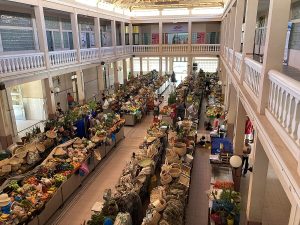

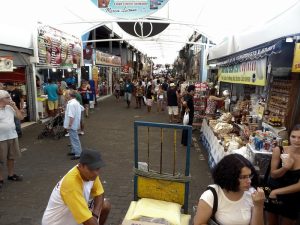
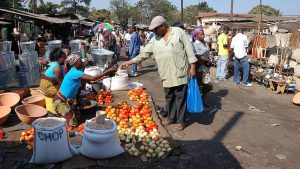
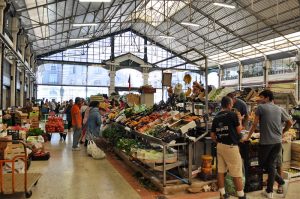
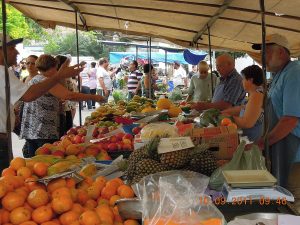
Um diálogo sobre compras
Joana: Oi Carlos, bom dia, tudo bem?
Carlos: Oi Jô, tudo ótimo! Você vai à feira agora?
Joana: Vou sim. Preciso comprar comida para preparar para o jantar.
Carlos: O que você vai comprar?
Joana: Vou comprar frutas (laranja, banana e abacaxi) e legumes (batatas e cenouras).
Carlos: Eu vou com você. Acho que vou comprar umas verduras.
Joana: Perfeito! Então vamos juntos. Que tipo de verduras você vai querer comprar?
Carlos: Eu quero comprar cheiro verde (salsinha e cebolina), alface e espinafre.
VOCABULÁRIO ÚTIL
AS FRUTAS |
||
a laranja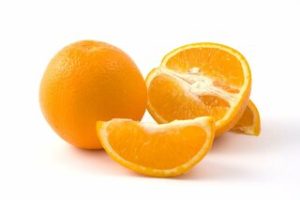 |
a banana 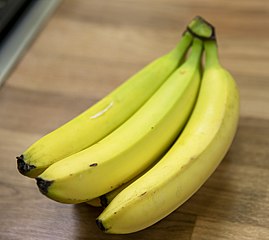 |
o abacaxi 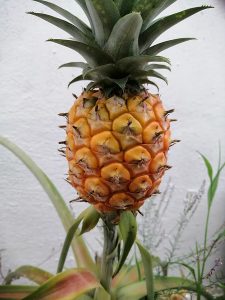 |
o morango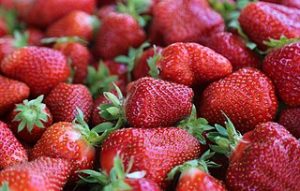 |
a tangerina  |
a uva  |
o abacate 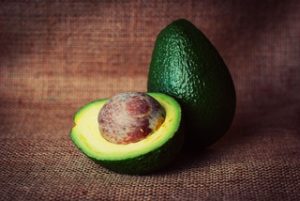 |
a manga 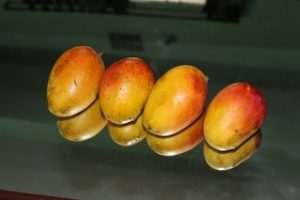 |
a cereja 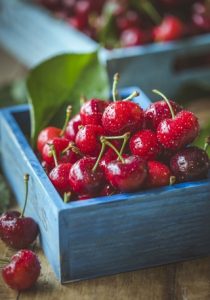 |
a amora 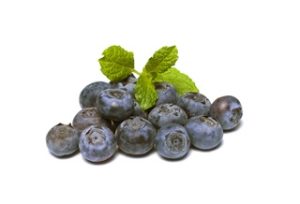 |
a maçã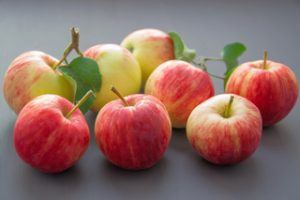 |
a melancia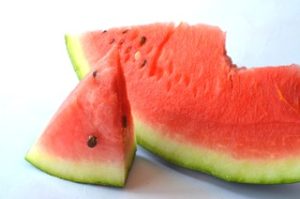 |
o mamão 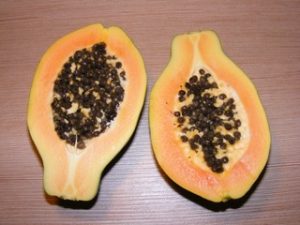 |
o melão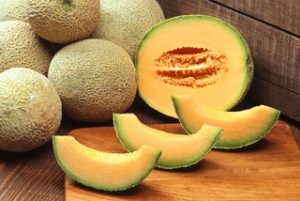 |
o tomate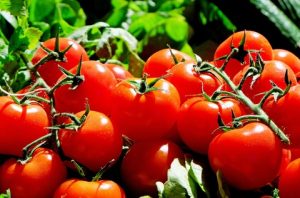 |
OUTRAS FRUTAS |
||
| o cajá | ||
| a jabuticaba | ||
| a acerola | ||
| o açaí | ||
| a goiaba | ||
| a pitanga | ||
Exercises
Working with a classmate, take turns asking and answering these questions:
- Qual é a sua fruta favorita?
- Que fruta você não gosta muito?
- Que frutas geralmente se coloca numa salada de frutas?
- Diga o nome de três frutas e suas respectivas cores.
- Quais frutas são comuns nos países tropicais?
- Imagine que você vai à feira amanhã de manhã. Que frutas você vai comprar?
- Onde é o melhor lugar para comprar frutas? Na feira? No mercado? No supermercado?
OS LEGUMES |
||
a batata  |
a cenoura 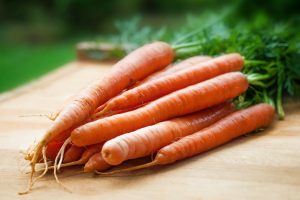 |
o aipim 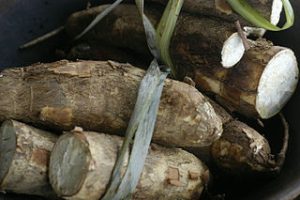
|
a beterraba 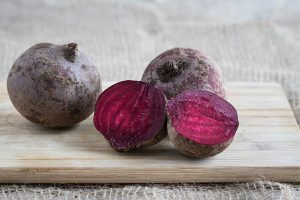 |
o alho 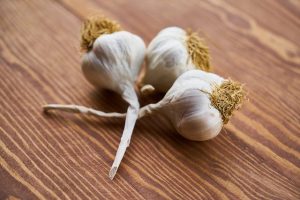 |
a cebola 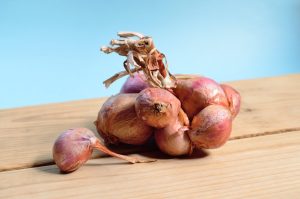
|
| o feijão | a abóbora | o arroz
|
| a lentilha | a ervilha | o grão de bico |
| o chuchu | a berinjela | o pimentão |
THE IRREGULAR VERB “TO GO”
O verbo irregular IR
The verb “to go” is an irregular verb in Portuguese. Here is the conjugation of IR in the present tense:
Watch this video that shows the conjugation of ir:
-
- EU VOU
- TU VAIS
- VOCÊ VAI
- ELE VAI
- ELA VAI
- NÓS VAMOS
- VOCÊS VÃO
- ELES VÃO
- ELAS VÃO
VERBO IR (TO GO)
(We use the verb IR to indicate things that are going to happen, or places that we are going to go)
EU VOU
VOCÊ VAI
ELE VAI
ELA VAI
NÓS VAMOS
VOCÊS VÃO
ELES VÃO
ELAS VÃO
O que você vai fazer amanhã?
Amanhã eu vou assistir um fime.
Amanhã eu vou comer no restaurante.
Amanhã
Depois de amanhã
No fim de semana
No sábado
No domingo
Etc.
Para onde você vai amanhã?
Amanhã eu vou para o cinema.
Amanhã eu vou para o restaurante.
Quando você vai viajar?
Eu vou viajar no verão.
KITCHEN UTENSIL IN PORTUGUESE video: https://www.youtube.com/watch?v=9XTm5bbXlog
SEASONS:
PRIMAVERA
VERÃO
OUTONO
INVERNO
Key Takeaways
Notice that we don’t put an “a” bettwen the verb “to go” and the next verb:
- Eu vou estudar no fim de semana.
- Tu vais comprar muita coisa?
- Eles vão almoçar às 12:00 horas em ponto.
- Nós vamos pedir uma pizza tamanho família.
- Você vai descascar os legumes?
- Elas vão lavar as verduras.
- Vocês nao vão jantar fora hoje?
Key Takeaways
When the verb “to go” is used to indicate going “to the,” “to the” can be expressed as either:
- para o (the location is masculine) or ao:
-
- Ele vai para o mercado; ele vai ao mercado.
-
- para a (the location is feminine) or à
-
- Ela vai para a feira; ela vai à feira.
-
AS REFEIÇÕES
Video: O Pescador de Comidas https://www.youtube.com/watch?v=BITu52_nO9s
